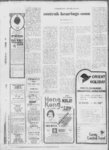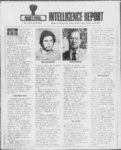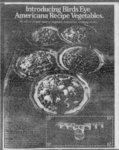| OCR Text |
Show 4 t i - i , t - ' H a 3 , . "k , " , vjwnF A , 1 'p, ' ,' - - 3 v .ir M ," ? vaNT r' , , v e i,!Vv. .UV vt - f v? '.w K?S " v'f "ss, 11, i s i . $ 't 41 ',' C ! .'... V., 3 . r Vs -? ' . ' r I, ,r ." Tfc- 3! 1 i s ;,'! v 4 y ; f s,vVr1'1 v ..,. -- fc s Jt & 451 - , 4 y ..... it . i r v y ; "t;i s A , . , Y . i - f 4'', i.w ,i 'u; i . s vv . ' , .. V , ,- s. r-- :,: .,. .! PT , 1 y ' 4,, ! ; ' J' ,,, H J r.-- .' x v. J A'N - hm. ' , ; w .if- ''S , ' : . : a5, v t x,;;. v4 Ji'vv", ? r i - s vi - - v- .v 'Ut.u.jt'!:?';.''r J ! Vs ,s.-r- , - i - ,:" 5v.)' ' -- ::- v v v. 4 F i. it 'v " w ift. i ,vb. I , " ej?- H ; , V lX ' - $ - '. As' y"' , sUriTJ-- r CZr-U'-"' 4 if tr. v -- v Tv?:', ;,.y , t ,'.?V -f " ?,i,'.. it r n 'u 4r , ' ' 1 : Vjl'-'-'i' f '- '- !'t t ' 5 Vc .1 A H r, t V S Wf :v , " - . '' i V' "y J f t V Wf 4" ' ' '. :.'? 'V V V ,'.f - " , j' il; ; '. $ V y;j' , .) ' V $ f f V" -- t V i ' ":i jUly'.v V V J SNTV t Vi ' t jr t '' , 4 , Sr , , il 5$ ' N'" , x ' vv !? V y yf: t ?feM: " l . e ksfczw - H v ". r pv 1 " - e 1 - A t "y v - , 't- V tV ' V- fcr . ' f. ' vVvXa ?A' Vv r y v "'$y V V'v-T-r.- j?T ?cv,.-,v v - , i .... . ? ., w 'T ?:? f(u K:--'i;- Built in a hurry, these crude barracks were home to 8,000 Japanese-American- during World War H. Inmates had to sell their homes, businesses for pennies. s w "S. '. I Jit ii ('.arturirht Trilmno Staff Writer &? Vv , Jr .. "Topaj looked so big. so enormous to us. It made me feel like an ant. Every place we go we cannot escape the dust . . . dust and more dust, dust everywhere . . I wonder who found this desert and why they put us in a ." Anonymous place like this . r:'- Evacuee - sC y ? ; vrVVr X -- 'f f - 4'5t S s Vc if 4? n .i presidential order, the military branded as "enemy aliens more than 100,000 citizens and aliens of Japanese descent living on the West Coast. They were swept inland into internment camps, like Topaz in Millard County, for the duration of World War II. Walled in and isolated, the evacuees struggled for dignity, their lives interrupted, their future And A 11 T()PAZ has been forgotten. Onee it drew headlines. Its vast apron of sagebrush, grease wood and salt grass cradled a camp of H.tXHl people shut in by barlx'd wire and armed guard. They were not enemy soldiers, but families of Japanese descent, many of them American citizens. The 1SM1 bombing of Jear! Harbor by the Imperial Japanese Navy shattered their lives. Their government distrusted them: their neighbors, shock ed, were suspicious. The military asked: Will these poo pie aid the enemy from w ilhin? . so by THIRTY YEARS ago last month, they were freed, the war over. Most returned to California Its barracks torn down or carted off. Topaz War Relocation Center vanished almost as quickly as it appeared. Today little remains. A skeleton of crumbling foundation and blacktop traces a staccato pattern upon the sand Daily the desert, fanned by wind, reclaims its own. Some, particularly the Japanese-Americanwant Topaz rescued from obscurity. They have pushed for its nomination by the Utah Historical Society to the National Register of Historic Places. This is their hope: "May this grim episode of basic American principles gone astray remind us to work for understanding and goodwill and justice in ail enlightener! America today." Topaz is, by right, their story to tell. In the November issue of the Utah Japanese American News, Shake Ushio. Salt Lake City, describes a recent visit to the campsite: "CONE ARE the barracks that stood row on dreary row. Gone are the towers, the symbols of justice gone astray. Gone are the wire fences, the sentries, the administration building, the petty rules and inane regulations reminders of freedom denied. "Gone also are the people, the aged and the young, the strong and the sick, the defiant ernes, the bewildered, the apathetic, the emasculated heads tit the imaginatively tumilies reef ul -- - all unwilling victims of a perverse government, a community of K.nito souls, fourth largest city in the State of Utah. All gone! Some say. Good, the sooner we ". ' lorget that shameful ordeal the better Yet upon reflection, we wonder if for . . re-so- posterity's sake, we shouldn't retain some record and recollection of those dreadful days. "... Perhaps, conscience also, the American requires that we do not . altogether forget. is "it sobering to reeail that though the Jafuiuese relocation . . was justified to us on the ground that the Japanese were potentially disloyal, the record does not disclose a single ease of Japanese disloyalty or sabotage during the whole war. " Henry . Steel Commager, tember. IUJ7 Harper's. Sep- WHEN PEARL llarlxir was bombed. Ted Nagata. now of Salt Lake City, was wrapp'd up in a boy's world in Berkeley. Calif where his father sold sewing machines The evacuation order pulled the fa mil y from its home into a horse viable, a holding area " Temporary assembly centers blossomed in exhibition halls, fairgrounds and race tracks outside major cities. ' I remember sleeping on a straw mattress." Ted recalls He was then six . ' years old. The Nagatas. crowded together with others, were confined six months in quarters never designed for humans Kcverish construction of camps inland and the readying of transportation necessitated the long wait. Then a train chugged through hundreds of miles of into remote interior Utah. It was a foreign climate: ion degrees in summer, jn lielow in wilder hot. It was windy and dusty and cold in w inter. "We had to walk to ihe centra! latrines, sometimes a dark cold walk ... If ed Nagata again remember strictly from a child's point of view. The school there was very I adven- ketball and football. "We'd sit on the flxr in empty Humbarracks and watch movies Charlie and Ladd Alan phrey Bogart. Chaplin . "Dad worked in a machinery shop and w lien ihe work in camp gave out, he worked in a nearby sugar beet factory and in a coal mine . . . can feel his frustration. I mean, if you can picture your father uprooted and put together with a lot of others with a lot of time and not much to do It begins to eat on your person." "They took my boy to the Army and now they take my other children An Old to a concentration camp. Now. of course, I Japanese Farmer ONE OF TED S teachers in camp was a indite beauty just out of high school The war plucked her from a dress design school in San Francisco. The teacher, Mrs. Fred Aoki, Salt Lake City, shares her memories: ' When got home from school that day. my dad s store was pitch dark. Al l irst thought he had had a heart attack "When I reached him, he was sitting gt m Ids chair and he looked very sad and forlorn. He was holding an evacuation 1 1 l was bewildering but also we were just kids and turous was new. everything "After the first six months, we were allow ed to go into the desert and look for toads and lizards. In camp, we played baseball, judo, sumo (wrestling!, bas- |



























































































































































